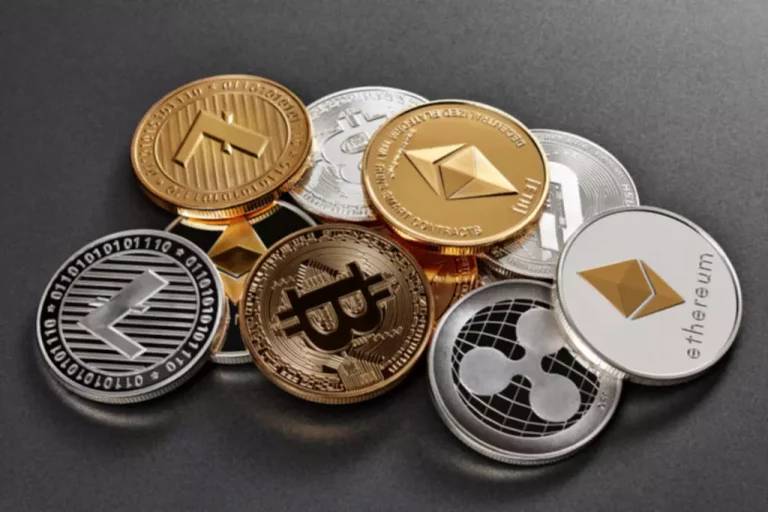Content
Thus, remember, a private key is like a secret code that’s just for you, and you should guard it like you would your most precious belongings. On the pro side, holding custody of coins yourself in your own wallet means that only you can access those funds. There is no List of cryptocurrencies third party that can steal them from you, and your funds aren’t pooled with other investors’ assets.
SEC’s Uyeda suggests agency withdraw staff bulletin on crypto assets
When you buy cryptocurrency, your access to your coins is What Is a Crypto Custody stored in a wallet (i.e., a digital account). A crypto custodian is the organization that manages the security for this wallet. If a crypto exchange or financial platform goes bankrupt or gets hacked, it causes real pain for its customers. If you store crypto on these platforms, you may wake up to find you can no longer access or withdraw your assets.
Crypto Custodian Fees and Pricing
Additionally, you may have to pay for sending and receiving crypto through your account. These fees can include custody fees, account setup fees, and withdrawal fees. Because of these unique challenges, crypto custody differs from the custody of conventional financial assets. So, let’s explore crypto custody and why it is important for the safety of your digital assets. This includes https://www.xcritical.com/ your confidence in taking sole responsibility for your assets, how comfortable you are trusting a third party, and the custodians available in your jurisdiction.
The Future of Cryptocurrency Custody
Hot wallets are typically available as standalone apps, extensions for your Web browser, or as browser-native wallets (like Brave Wallet). Cryptocurrencies are highly vulnerable to cyberattacks, which can wipe out cryptocurrency from users’ wallets in seconds. In addition, your funds can be at risk of liquidity crunches, such as the one experienced by the FTX exchange.
Key to capturing this market is a highly secure and customizable institutional crypto custody solution. Banks and financial institutions have long offered institutional custody services to help customers store, manage and trade traditional assets. But the explosion in digital assets combined with rising institutional investors’ interest in tokenized real-world assets means there is now a rush to support customers with digital asset custody options. Crypto custody solutions are service providers that act as guardians of your digital assets.
It provides independent storage facilities for safeguarding your crypto tokens. Third-party custody provides some of the highest levels of digital asset security. This solution could work well for individual investors, as well as institutions, such as asset managers, hedge funds, and high-net-worth individuals (HNWIs). Within third-party custody, there are different types of security options to consider. For example, online or hot wallets are connected to the internet and therefore generally more easily accessible.
The information herein is general and educational in nature and should not be considered legal or tax advice. Tax laws and regulations are complex and subject to change, which can materially impact investment results. Fidelity cannot guarantee that the information herein is accurate, complete, or timely. Fidelity makes no warranties with regard to such information or results obtained by its use, and disclaims any liability arising out of your use of, or any tax position taken in reliance on, such information.
It assisted Amy in managing her digital assets with expertise and sophisticated security measures. This reputable third party ensures that her digital money and assets are protected from potential risks. It also helps her manage all the safety details and ensure compliance with the regulations. This decision helped Amy rely on the proficiency and reliability of a professional custodial service. Trusted custodians also often adopt both hot and cold storage to balance robust security with convenient access to assets.

Ripple Custody allows exchanges to confidently grow their volumes and profit margins without compromising security, compliance or operational efficiency. A crypto wallet, then, doesn’t actually “store” your crypto assets (that happens on their respective blockchains); rather, the wallet stores your private keys. To manage the assets in your crypto address through a crypto wallet interface, you’ll need to give it access to your private keys (often by importing your recovery phrase). For this reason, it’s important to only enter your recovery phrase into a secure, trusted self-custody wallet provider (like Brave Wallet).
- Trusted custodial services should also be transparent about the measures they have in place to protect users and their funds.
- Today, various service providers offer crypto asset custody, allowing you to store your private keys safely.
- The perpetrators got inside the custodian’s internal systems, found the wallet keys and began transferring funds out.
- Third-party custody provides some of the highest levels of digital asset security.
- Although this option provides a safety net should you lose access to your private keys, it also introduces a potential vulnerability, because you’re sharing custody with another entity.
- Ripple’s latest custody quick guide for Crypto Exchanges outlines the core ways exchanges can access the digital asset ecosystem as part of this shift.
- This infrastructure can be as simple as two-step authentication or basic multi-signature protections, where the third party possesses a key for co-signing the customer’s transactions.
Given the potential value of digital assets, the consequences of losing access to your crypto holdings can be financially devastating. Therefore, individuals and businesses often turn to third-party crypto custodians to maintain the safety of their digital assets. Digital asset custodians do not technically store any of the assets because all data and transactions exist on a public ledger called the blockchain. Instead, what they guard are users’ private keys – the important part of a crypto wallet that grants access to the funds held in it. When you opt for self-custody, you are solely responsible for safeguarding your private keys, which are the cryptographic keys that grant you access to your funds.

When you store crypto with a third-party custodian, you’ll be expected to complete the same sort of checks to make sure your cryptocurrency was not acquired through illegal means. One other benefit of self custody is that you can also use a “cold wallet,” which is a physical device (similar to a USB drive) that enables you to securely store your private keys offline. People often treat hot wallets like keeping some cash in their pocket, and cold wallets like a home safe for more funds. Instead of trusting banks and governments to provide custody, Web3 can put you directly in control of your assets. While centralized crypto exchanges (CEXs) have cropped up to provide easy on-ramps and custody for crypto, the true spirit of Web3 is about self custody. After all, trusting a CEX means trusting a centralized corporation that’s (in many ways) just as opaque as a bank.
Custody had changed from being a personal relationship to engaging with a managed institution. This evolved into a new level of financial complexity, further dividing daily life and decentralized banking. Partial custody is a type of custody where the third-party custodian has limited control over your assets. You can think of it as storing cash in a safe at home rather than keeping it in a bank account.
That said, let’s talk about taking the safety of your assets into your own hands. Evaluating a custodian involves reviewing their management, client feedback, and past security events. Due diligence should show that the custodian has a proven track record of reliability and trustworthiness. Adam Hayes, Ph.D., CFA, is a financial writer with 15+ years Wall Street experience as a derivatives trader. Besides his extensive derivative trading expertise, Adam is an expert in economics and behavioral finance.
Transactions executed through cold storage are locally signed, significantly reducing the risk of hacks. Cold wallets are particularly suitable for long-term storage and safeguarding significant amounts of cryptocurrency. The main utility of cryptocurrency custody solutions lies in safeguarding cryptocurrency assets. Private keys, which are alphanumeric strings used to conduct transactions or access crypto holdings, are the target of crypto-asset thieves because they provide access to the assets. Most often, self-custody crypto wallets will come in the form of a “hot wallet,” which is connected to the Internet.

Leave a Comment